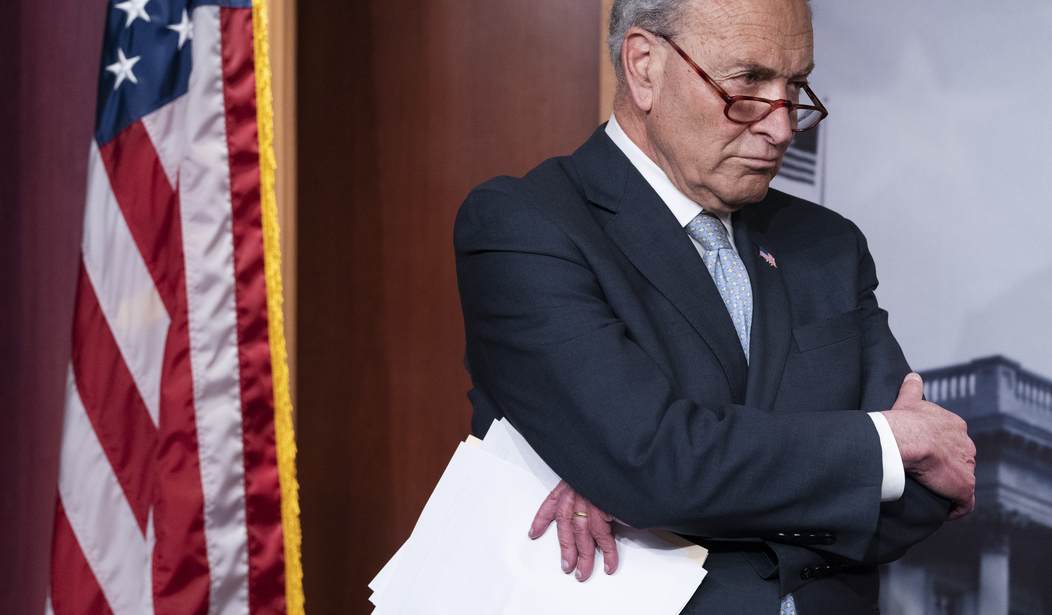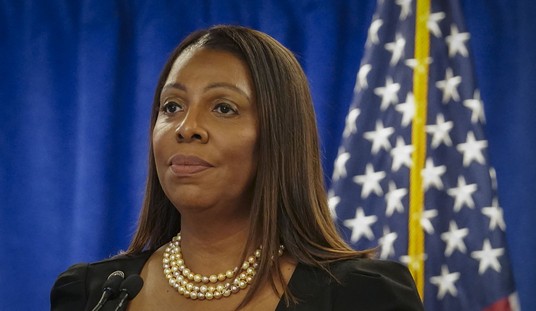Connecticut Sen. Chris Murphy told reporters on Thursday that it’s possible the group of Democrats and Republicans working to craft a legislative response to the shootings in Buffalo, New York and Uvalde, Texas will come to an agreement today, but depending on who you read and what anonymous Capitol Hill sources they’re using, a deal is either nearly in reach or about ready to fall apart completely. Either way, with senators now heading home for the weekend, it looks like any debate by the broader chamber is going to be delayed until next week.
Even the scope of a potential agreement is unclear at this point. For most of the week we’ve been hearing that the Democrats and Republicans working to craft a bipartisan package are looking at general areas: gun sales to adults under the age of 21, grants to states to establish red flag laws, a spending bill aimed at improving access to mental health treatment, and increased spending on school security. There’ve been a couple of proposals floated regarding young adults and gun sales, but with Murphy saying on Thursday that a ban on the sale of so-called assault weapons to under-21s is now off the table, the focus appears to be on opening up juvenile criminal records and including them in background checks when young adults are purchasing a long gun.
However, depending on who’s talking to whom, other possible additions to the package keep popping up.
Two of the sticking points in the negotiations are whether to mandate requirements for the safe storage of firearms at home and how to define commercial sellers of firearms.
Republicans want to create tax incentives for the sale of safe storage equipment while Democrats want to also add mandates for safe storage.
Another tricky issue is how to handle people who make a business of selling firearms online but are not required to conduct background checks because they don’t hold federal firearm licenses. Gun-control advocates view this as a loophole in the law requiring firearm dealers to conduct background checks.
Murphy said last year’s talks to expand background checks failed because Cornyn “wouldn’t budget enough on sharpening the definition of commercial gun seller.”
Cornyn on Thursday said significant progress has been made since then on classifying people who make a business of selling firearms, noting that he and Murphy have worked on the issue for more than a year.
I hadn’t heard much about gun storage and redefining who, exactly, is considered a commercial seller of firearms being included in the discussions until this piece at The Hill this morning, but with both Cornyn and Murphy commenting publicly on those measures, apparently the scope of a potential package is broader than what we’ve been led to believe.
How much support the deal is getting is also very much an open question at the moment. According to one anonymous GOP senator who talked to POLITICO, not only is an agreement within reach, but it could get the support of more than a dozen Republicans in the Senate.
Republicans are mostly open to a gun safety proposal because of how limited the talks are, according to interviews with more than a dozen GOP senators. Big background-checks expansions, raising the minimum age for buying some firearms and a revival of the assault weapons ban are all essentially off the table.
One Republican senator, granted anonymity to speak candidly about the talks, said that “John Cornyn is not going to do anything that won’t go over with his base in Texas.” A second Republican senator estimated the potential base of GOP support as perhaps “a group of about 15 of us. Maybe up to 25, depending on what’s in it.”
The Washington Post, however, suggests that there’s still broad opposition from Senate Republicans, especially when it comes to the inclusion of grants to states to set up their own “red flag” gun seizure laws.
Rep. Salud Carbajal (D-Calif.), who sponsored the House measure incentivizing states to act, said similar legislation would “provide the foundation” for a Senate deal. “They are considering a few other things that are a little bit more challenging to get consensus on, but the red-flag bill is one that they seem to have more consensus,” he said.
But conservatives appear intent on undermining that consensus. Sen. Steve Daines (R-Mont.) said Thursday that states are free to pursue red-flag laws if they wish, but “this should not be something Congress needs to meddle in.”
Daines, who is seeking to chair the Senate Republican campaign committee for the 2024 election cycle, added, “Many of our states are swimming in money right now after we shoveled $7 trillion of covid money out the door, so money is not the issue. The states can do this if they think it’s the best thing they should be doing.”
Other conservatives who voiced opposition included Sen. Bill Hagerty (R-Tenn.), who noted a red-flag law in New York did not prevent the May 14 mass shooting in a Buffalo supermarket that left 10 dead, as well as Sen. Roger Marshall (R-Kan.), who called any red-flag provision a “poison pill” for any Senate deal. “I don’t see how a red-flag law passes up here,” he said. “I think it’s an infringement on the Second Amendment, and just like I’m standing up and fighting to protect our freedoms of speech and our freedoms of religion, I’m going to stand up and protect our Second Amendment.”
Other senators, including Rand Paul and Ted Cruz, have adopted a “wait-and-see” attitude towards any potential package that Senate negotiators are able to finalize, but aren’t likely to go along with any red flag efforts if they’re included in any agreement reached by those taking part in the bipartisan discussions. I think a number of Republicans are genuinely undecided and extremely interested in hearing what their constituents are saying, so I would encourage you to reach out and contact your own senators and let them know where you stand.









Join the conversation as a VIP Member